Life at/after Automattic
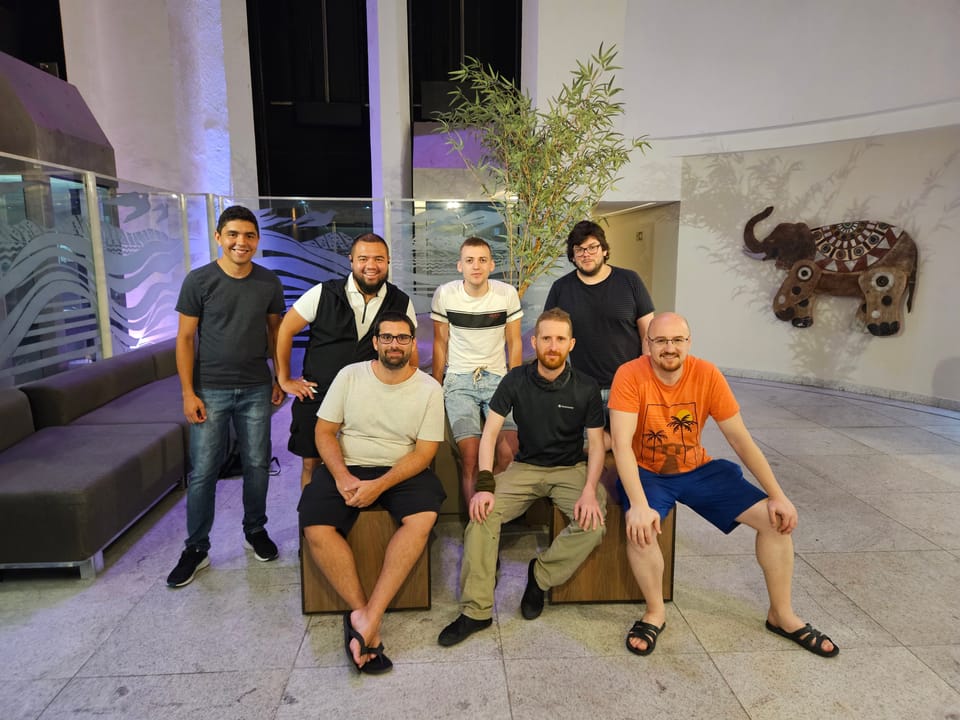
Last October, I took what's called an "alignment offer" - a severance package offered when an employee and company's values no longer align. With six months of runway, I decided to take a sabbatical to work on personal projects and explore what's next. If you're curious about the journey, check out parts 1, 2, 3, 4, 5, 6, 7, 8, 9, 10 and 11.
This blog post concludes my series on what I did after leaving Automattic. I'm not starting a new job yet, but I'm slowly moving into freelancing and probably won't have as much to share in the coming weeks.
This post is not meant to kick around wildly, screaming awful things. I'm very thankful for my time at Automattic, all the good stuff the company brought me, and all the incredible people I met there. I need to write this down to close that chapter of my life.
This will be a long one and undoubtedly be a big brain dump. I promise to name the child CEO only once in the text below. He causes enough drama on his own already.
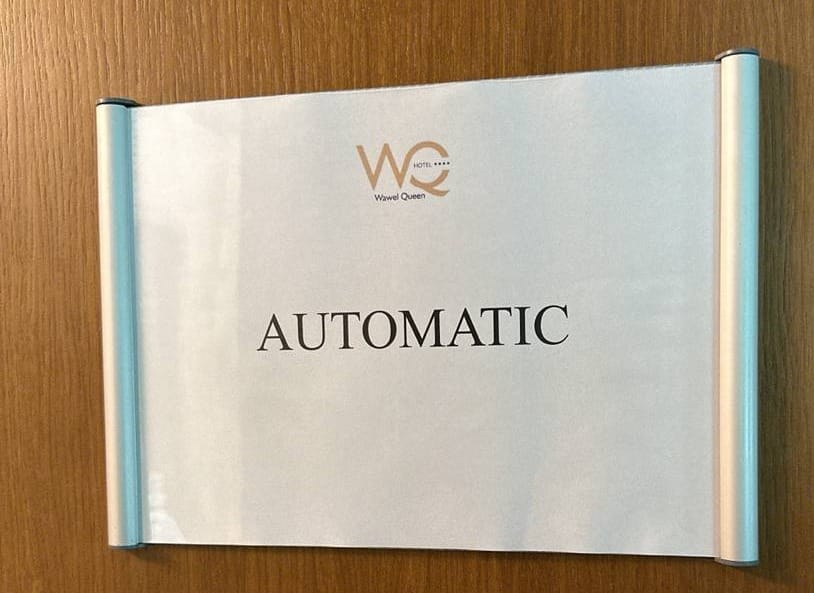
I wrote about leaving Team Apex in March last year to join a new team. As I was still employed at the company, I couldn't write about how conflicted I was at the time. A higher-up asked me to join the new team, and I sincerely saw it as an awesome opportunity to learn new things, meet new people, and explore other areas of the company. But it hurt me so fucking much to leave behind my old team.
Almost everything at Automattic revolves around performance. On the internal pages, there's a table where you can see how you perform compared to your teammates (or anyone at the company). You're assigned a number compromised of code written and shipped, Slack messages, and P2 (intranet) posts. If you or your team goes below the bar, you're given a few weeks to improve your performance drastically — or you're kicked out.
Not to brag, but I was considered a high performer. I like to ship fast and iterate, which gave me a headstart on more punctual teammates who want to take their time and probably do the same work without needing to iterate later.
It hurt me to leave Apex because I knew that by leaving, I would leave them more vulnerable to performance reviews. Something that became clear a few months later when one of my former teammates was fired. It made me so angry because that person - while maybe not the most performant coder on the team - was what bonded the team together. He made us do social calls, welcomed every new employee on Slack, and was the guy who never stopped talking and interacting with everyone at meetups. He was the glue of Team Apex. Not finding him a suitable spot for him in a 2000-person company is an HR failure.
(It also hurt me a lot to leave Apex because I love every single one of them, and I consider them all friends and among the finest people I've ever met.)
My journey toward leaving began months before the team switch, in February 2024 when WordPress.com's leadership moved to a new person.
This person wanted to break with the old. He told us to drop everything, adopt a new project management method, and shift our focus on developers. He and I started on the wrong foot, which became a conflict that evolved into him criticizing our whole team and watching us closely. This, in turn, gave me a lot of stress and made me extremely unhappy.
The atmosphere felt toxic. I was so close to sending HR my resignation.
But I told myself to give it another day, then another week, and time kept moving.
Then, I switched teams.
My new team wasn't the same as Apex.
Things weren't as personal, and we didn't have social meetings for a long time. Most of our communication was work-related.
We did have a standup bot that asked us daily what we are working on and that would post the answers on Slack. I abused this bot and overshared my personal life with it.
Pics of the children during the weekend? Check. What song was I currently listening to? Why not.
Slowly, I noticed that the other guys were also opening up more and starting to share personal things. Not long after, we started having social calls. They were awkward at first, but they were happening.
I'm a firm believer in personal relationships at work. You cannot do a great job if you don't know the people you're working with at least a little. Empathy is the ingredient to success. Having Caribou come together a little closer is perhaps my most significant accomplishment in that team.
The people in the Caribou team were friendly. We went on a meetup in Milan, and while Apex meetups were more focused on fun and project planning and less on work, I truly enjoyed it.
However, the work was meh.
I did three projects in Caribou, all of which were really dry. One involved scheduling plugin updates, another involved updating 200K sites to a new version of PHP, and the last one involved exporting user content to AI providers.
The AI export project killed me. It was so dull, had so many steps and procedures, and I felt all creativity draining from my body.
I think I was getting pretty close to burnout then.
I rediscovered this draft blog post from around that time (June 2023), centered around a Taylor Swift song that resonated a lot with me back then. I never published it, but I was on one of the lowest lows of my entire career.
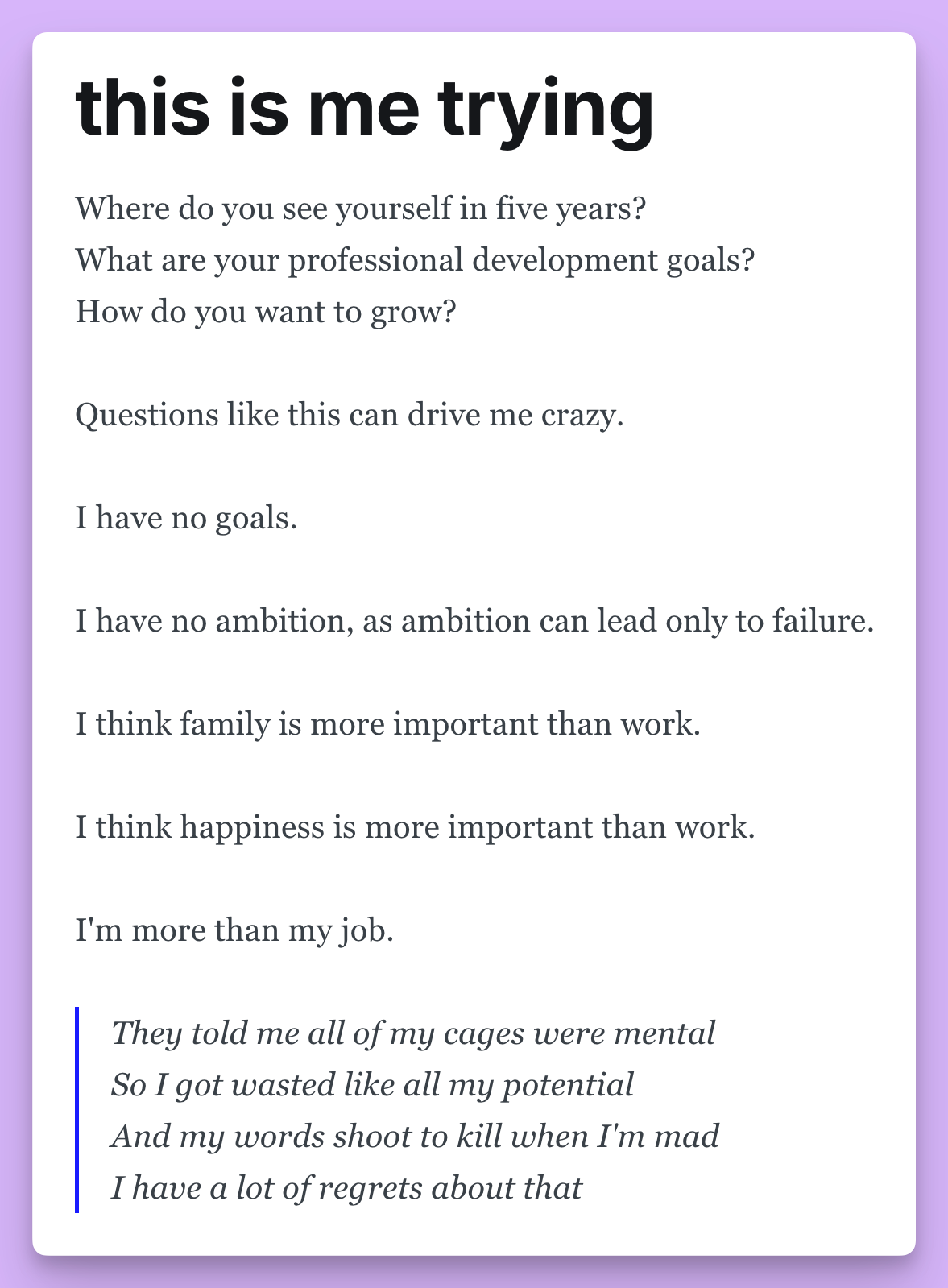
But I kept working, thinking, "Next week will be better," and voicing my frustration with not feeling creatively challenged at every opportunity.

Things didn't get better. I even got the reply "But you're so good at it!" when I said I didn't like the work I was doing 😄
I don't want to point fingers here: everyone involved was operating at their best, given the situation. Finding your way in a big remote company is difficult, and things take much longer remotely.
As we say in dutch: "Voor geld danst den beer". Loosely translated: money is what keeps the bear dancing. I kept going because it was easier than leaving and not having an income anymore.
When Matt decided to turn the dial to 11 with his drama, asking us to either side with him or leave, the decision was easy to make. I disagreed with him, and I wanted out because what I was doing was not making me happy anymore.
Looking back, I feel a lot of gratitude for my two years at Automattic and regret for not being able to fit into it. Drama and the CEO aside, it's a great company with some of the most gifted people I've ever met.
A friendly agency once asked me to give a talk about how remote work works at Automattic. Because of a tight deadline, I had to reschedule that talk, and then I quit Automattic. In the end, I never gave the talk.
The talk was about what's good, bad, and ugly at Automattic. If anyone who wants to apply ever ends up here, here you go.
Good
- The people. Most people are awesome. And clever.
- The compensation and extras.
- The travel, but also more on that in Bad. You get to see very nice places.
- The culture.
- The work/life balance. You get to pick up your kids from school.
- There's an anonymous message board where you can rant about anything that bothers you. It's excellent to let off steam.
Bad
- It is a commercial company. When joining, I had high hopes of contributing to open-source, and while many of my contributions were technically open-source, they were only used by Automattic.
- Lack of clear vision. We changed focus so often. In my first year we needed to become a competitor to Substack, when that didn't work out we had to focus on developers, and when that didn't achieve the wanted results, we shifted to Agencies. Make up your mind.
- Lots of shifting around. We were "the newsletter team," and we had all the expertise in that area, but suddenly, another team took over, and we were handed a video plugin we had no clue about.
- The spaghetti code. Fifteen years of code generates a lot of spaghetti. Finding your way around is hard.
- The context switching. WordPress.com is so huge, and you're constantly switching context between all the projects and subprojects. It's a lot to keep in your head.
- The travel. It's great to be able to meet up in beautiful places like Recife in Brazil. The bad is that the company expects you to work there and only take 1 "fun day". I think you need to utilize the time together to do things you cannot do as well remotely, like bonding and planning/discussing projects.
- A nitpick: it's hard to impossible to talk about local stuff like Het Eiland, how Bart De Pauw is a bully who keeps rolling around his own self-pity or Belgian politics. This might seem stupid, but it makes casual chats a lot harder.
Ugly
- The politics and the unclarity to see where certain decisions come from.
- The extreme focus on performance and the quantification of everything. Not everything needs to be data-driven.
- If you want to do your job to the fullest, you don't get there with 40 hours a week.
- The paperwork. Everything needs to be written down somewhere, so much time is spent on writing P2's and reviewing your colleagues.
- Review inflation. It's a stick they use when you give someone a good review and higher up disagrees.
In what feels now like a gift from the universe, my Automattic story came full circle when my old team had a new meetup. Out of all the cities in the world, they chose to do it in my hometown, Antwerp. It was a fantastic week. Almost every evening, I joined them for dinner and showed them around some of my favorite spots to eat. Even though I didn't know I would be leaving Automattic soon after, it was the closure I needed.
Thank you guys.
Onwards!
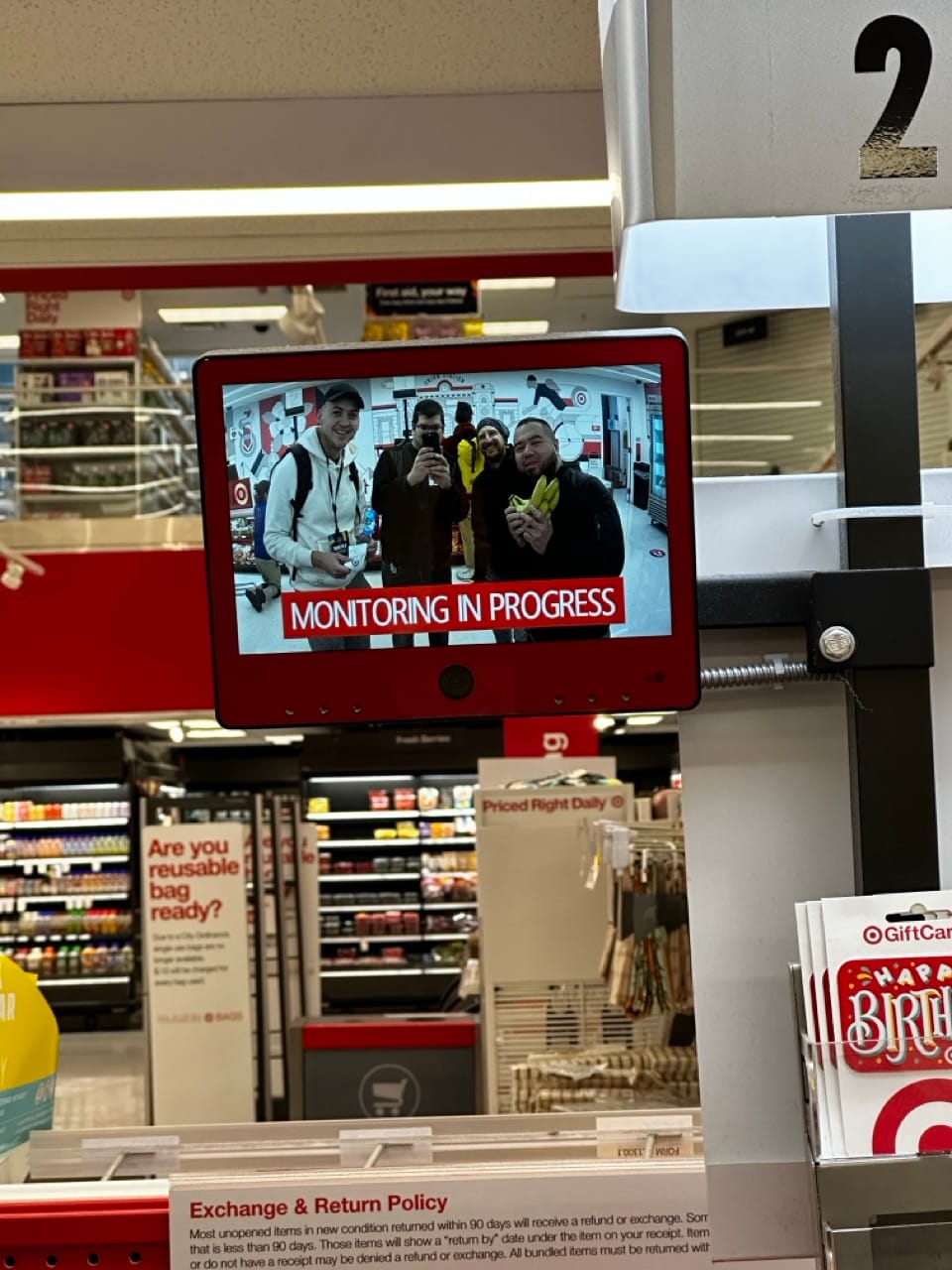

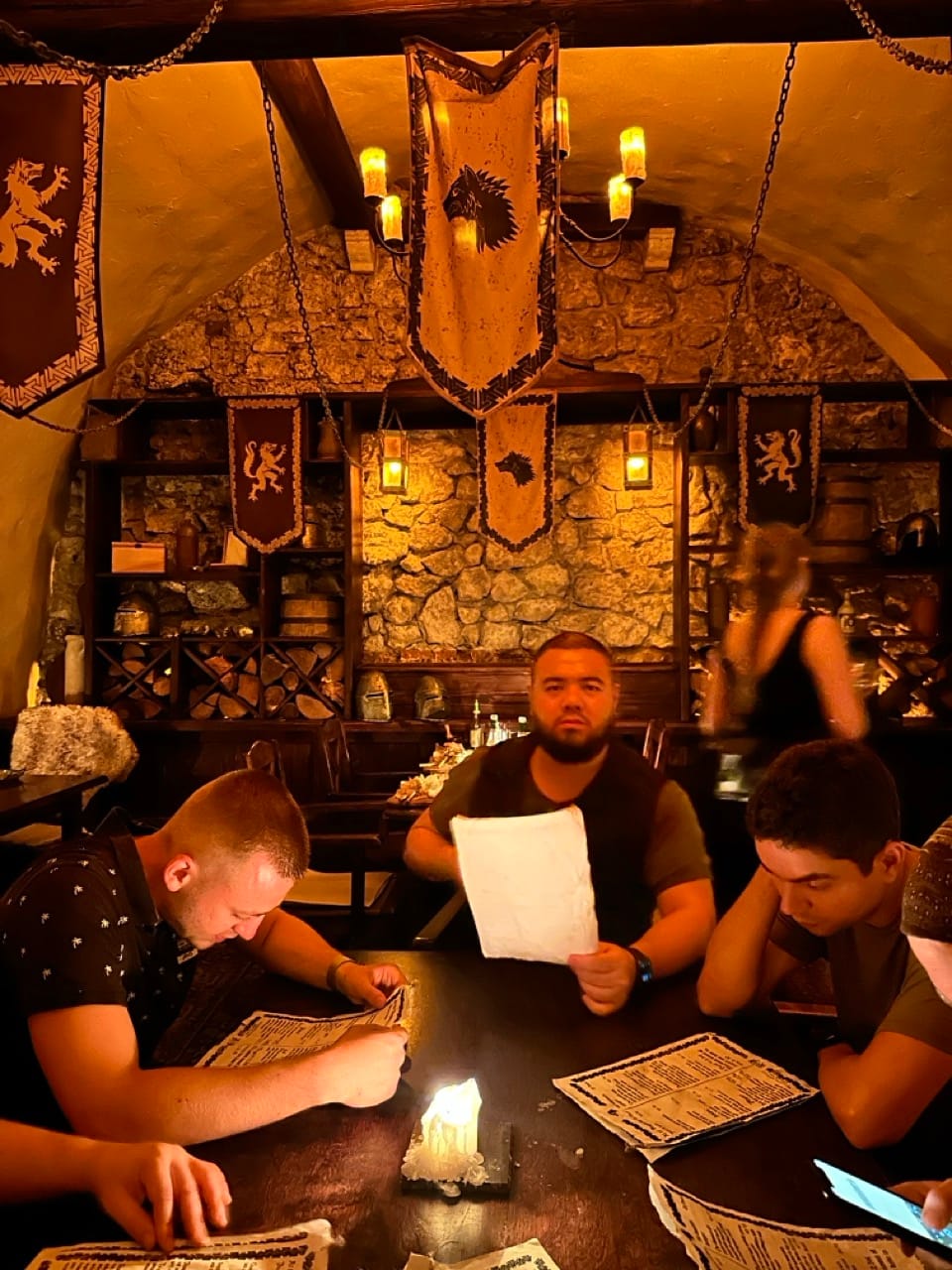
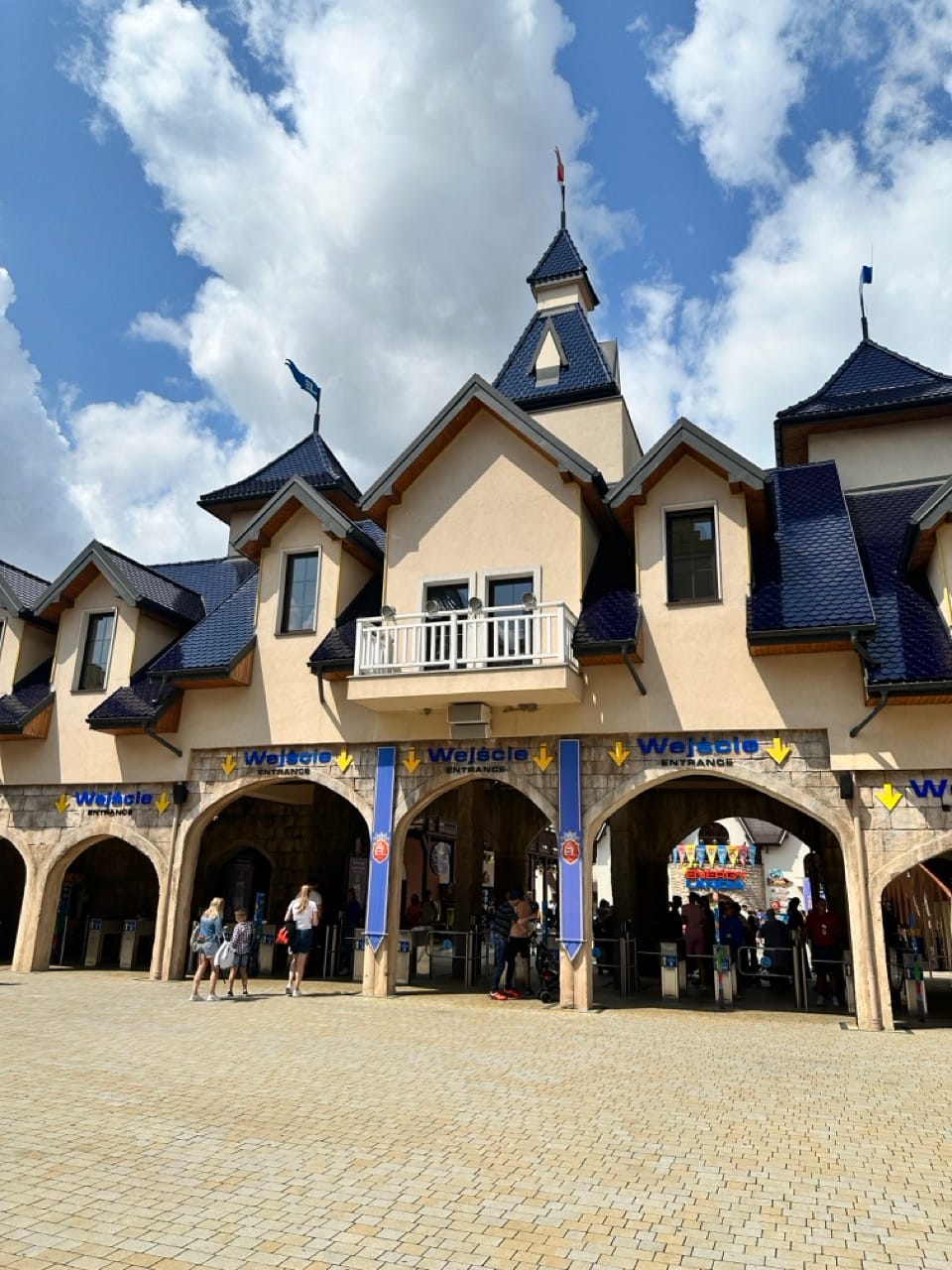
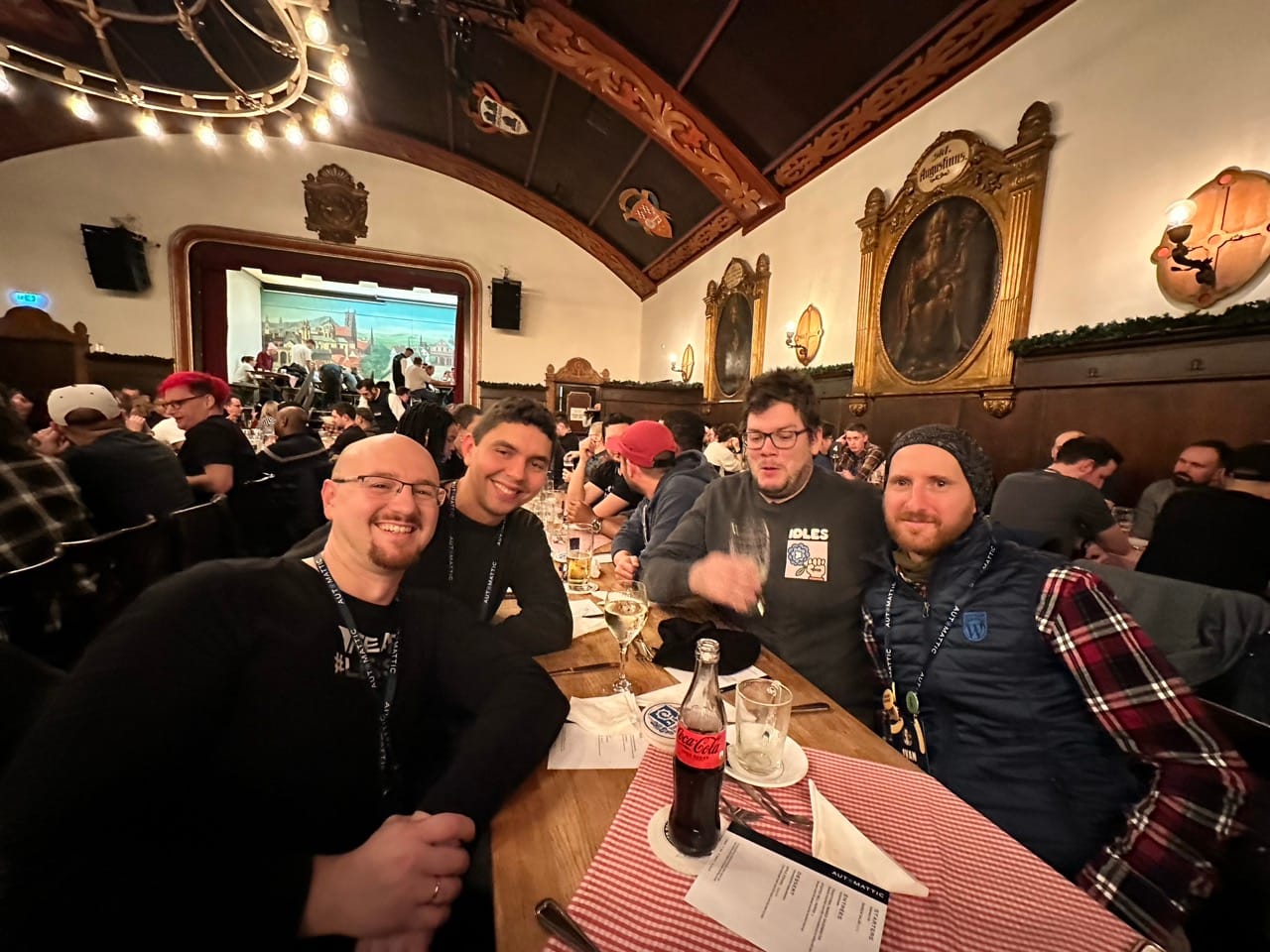
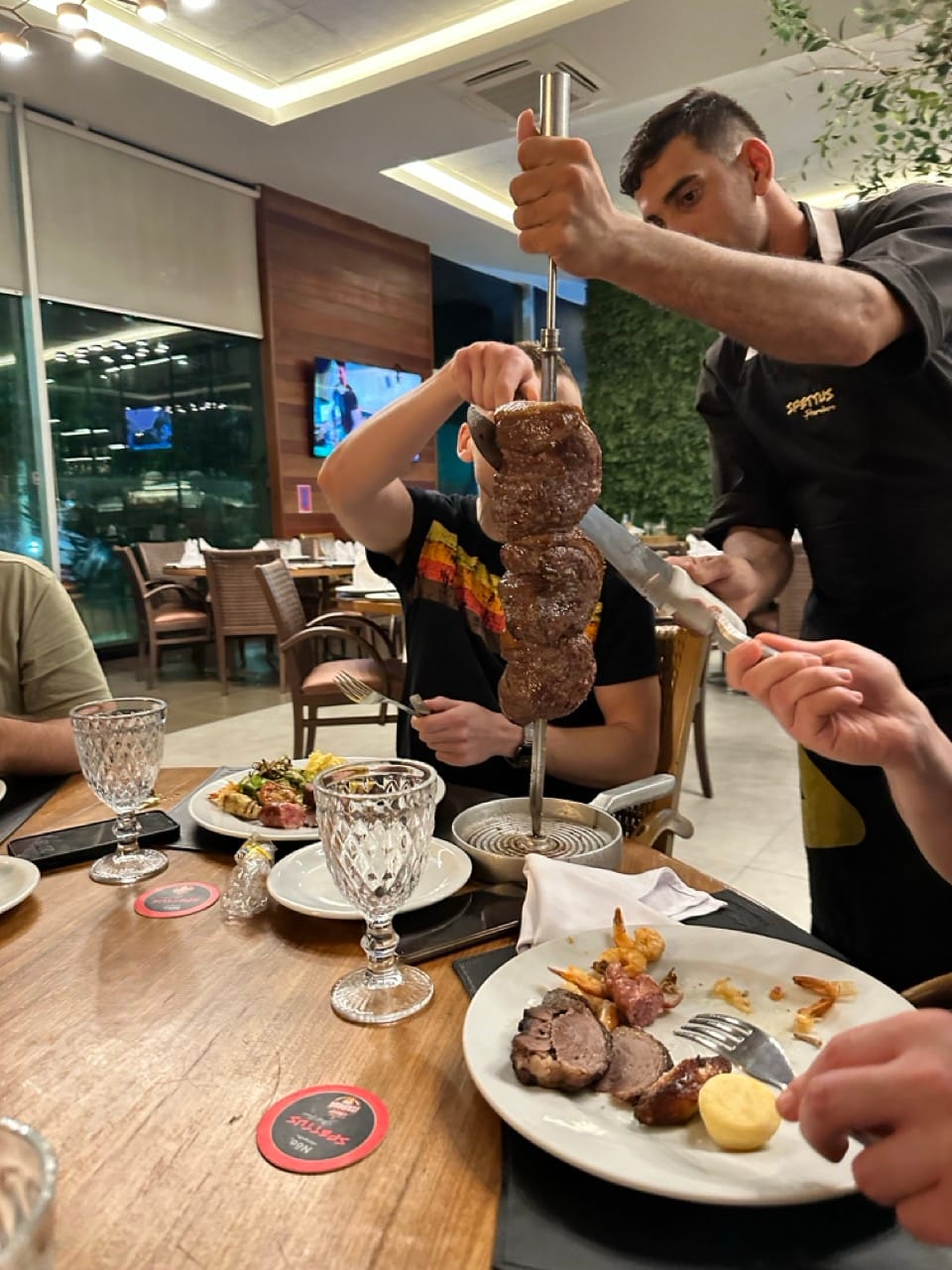
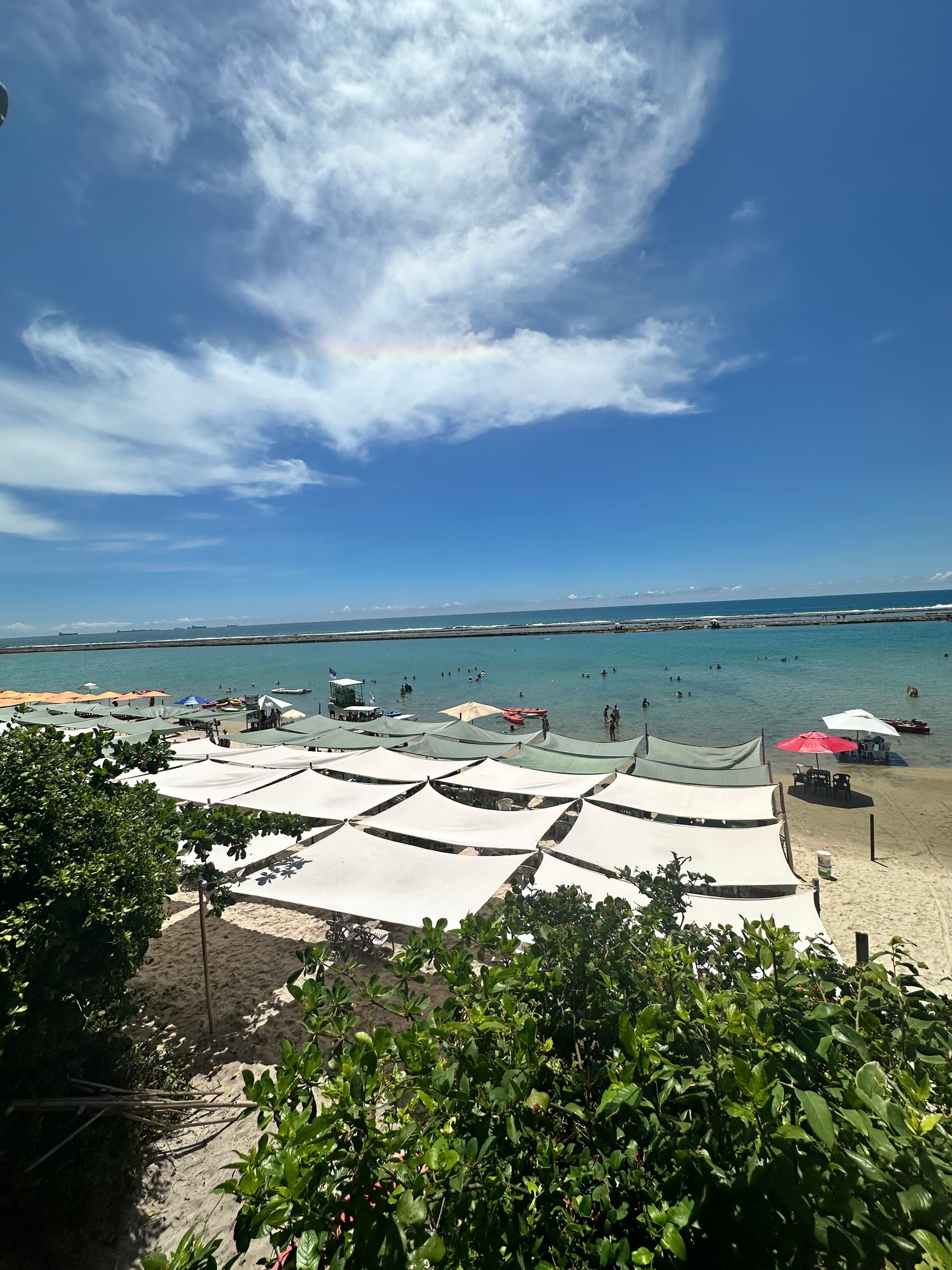

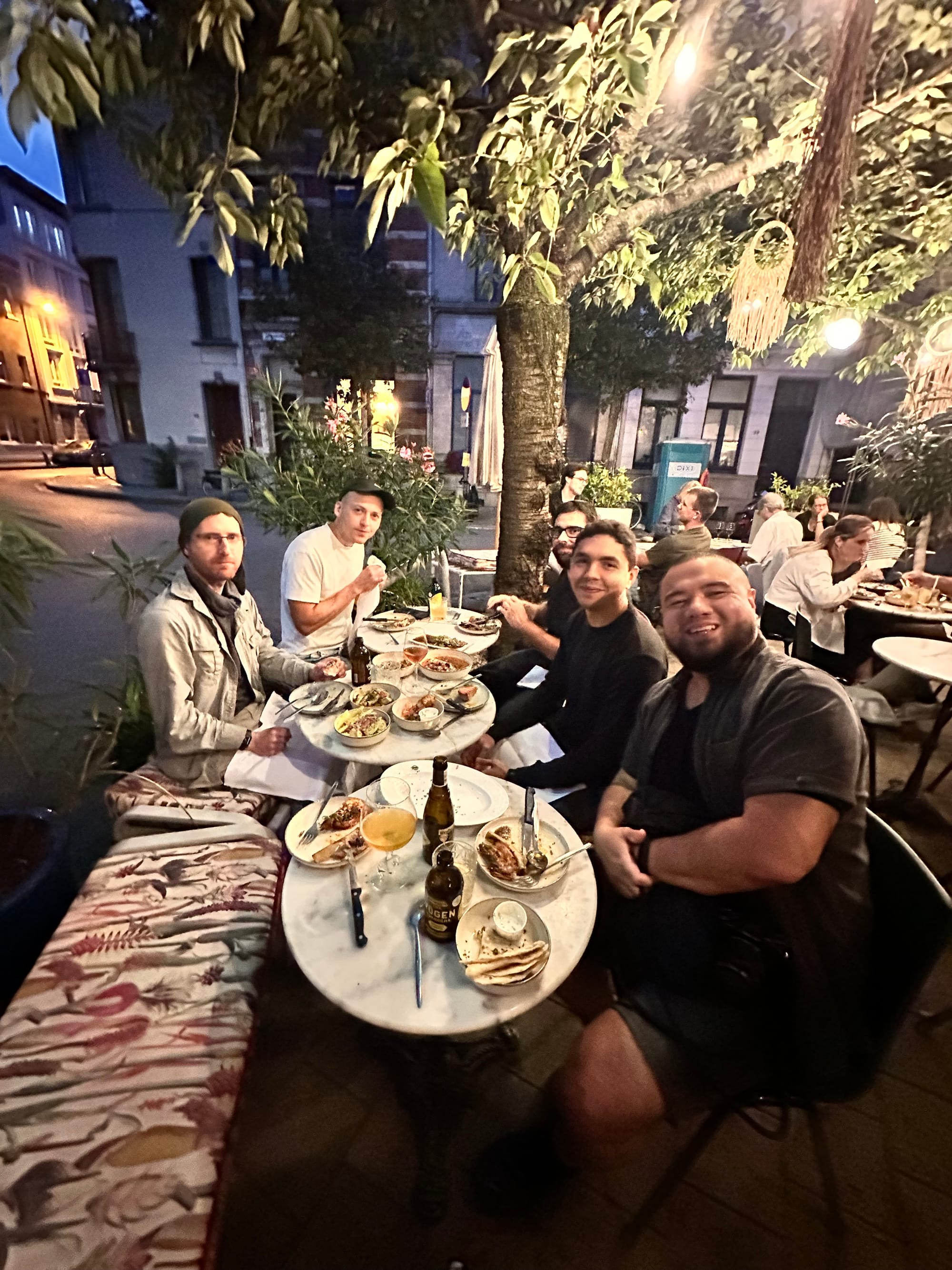
Denver, Tenerife, Krakow, crazy The Witcher restaurant in Krakow, Energylandia - the most thrilling amusement park I've ever been too, a loud beer hall in Munich, Recife, Porto de galinhas, rainy Milan & Antwerp.
Member discussion